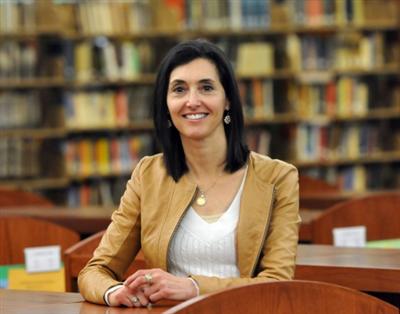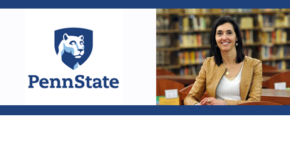 The humanities and soft skills might be more important than ever.
The humanities and soft skills might be more important than ever.
Laurie Grobman, professor of English and women’s studies at Penn State University, says these skills will become more important for businesses in our changing world.
She and coauthor E. Michele Ramsey recently published Major Decisions: College, Career, and the Case for the Humanities (University of Pennsylvania Press 2020).
Dr. Laurie Grobman is a Professor of English and Women’s Studies at Penn State Berks. Grobman’s teaching, research, and service interests center on community-engaged scholarship and teaching, bringing together students and community organizations to produce meaningful work while enriching students’ learning experiences. She and her students have worked closely with the city of Reading, Central Pennsylvania African American Museum in Reading, Centro Hispano in Reading, Jewish Federation of Reading, and the Olivet Boys & Girls Club of Reading. She founded Young Scholars in Writing: Undergraduate Research in Writing and Rhetoric, now in its 15th consecutive year of publication, and the international, multidisciplinary online journal, Undergraduate Journal of Service Learning and Community-Based Research.
Laurie has published six books, including two edited collections in 2015: Pedagogies of Public Memory: Teaching Writing and Rhetoric at Museums, Archives, and Memorials (co-edited with Jane Greer), and Service Learning and Literary Studies in English (co-edited with Roberta Rosenberg). She also has more than 40 published, peer-reviewed articles and book chapters. In 2018, Laurie assumed co-editorship (with Deborah Mutnick) of Reflections: A Journal of Public Rhetoric, Civic Writing, and Service-Learning.
Laurie’s article, “Engaging Race”: Teaching Critical Race Inquiry and Community-Engaged Projects” has been chosen to receive the 2018 NCTE Richard C. Ohmann Outstanding Article in College English Award.
Grobman is the 2014 Carnegie Foundation for the Advancement of Teaching Outstanding Baccalaureate Colleges Professor of the Year and was the recipient of the Penn State University President’s Award for Excellence in Academic Integration in 2012. Under Laurie’s leadership, the Berks Center for Service Learning and Community Based Research earned an Exemplary Distinction in 2018 from the Northeast Regional W.K. Kellogg Foundation Community Engagement Scholarship Award sponsored by the Association of Public & Land-Grant Universities (APLU) and the 2018 Penn State University Community Engagement & Scholarship Award
Humanities
Despite constant rhetoric about the uselessness of the humanities, I and my colleague, E. Michele Ramsey, have found that across business and industry, the humanities are increasingly recognized as technology’s “invisible” partner. We argue that the humanities are technology’s necessary partners.
Rapid change across all economic sectors and in virtually all workplaces, mass amounts of information needing to be interpreted wisely and ethically, the advantages—but also threats–of automation, and the negative costs of cultural misunderstanding all demand critical and creative thinkers and problem-solvers who are flexible and adaptable. These and other skills, typically labeled “soft skills”—but what we call core skills—are more important for college graduates than ever before, and they are promoted through coursework in the humanities.
That’s why an array of jobs and career opportunities are available to humanities graduates across all sectors of the economy. The Georgetown Center on Education and the Workforce found that in 2018, the average salary for humanities and business majors was nearly equal.
Moreover, ethical questions arising from emerging technologies demand humanistic thinking. So do complex and ever-evolving wicked problems that resist easy solutions. Because these issues are simultaneously, technical and human, a 2018 report by The National Academies of Sciences, Engineering, and Medicine calls for integrating the arts, humanities, and STEM in higher education.

Comments
One response to “Laurie Grobman, Penn State University – Humanities”
I find myself to be unsatisfied by the Grobman. As scientists have abandoned the derogatory terminology, soft sciences that would have included psychology and sociology, I suggest that soft skills–not defined BTW–is puzzling. If it’s important, why diminish it?
My bigger problem with Grobman is the persistent separatist us vs them attitude that so-called humanists use to decry science and engineering. Galling are the notions that:
1) the technical world cannot think from a humanistic point of view.
2) we cannot appreciate creativity, the word, the art form whatever genre
3) that we are these automatons with no ethical sense of humanity
4) that we all denigrate the humanities.
None of these attitudes that drip poisonously from the pens and mouths of fake humanists are reasonable or true, not these nor a multitude of others, mostly forming around money, yes funding and the jealousies thereto.
Besides the root of all evil, the state to which the academy has evolved is the real problem. Briefly;
the academy has become a glorified vocational system having largely downplayed, even abandoned and shut down many of the humanities programs in so many schools, the value of the liberal arts education.
I have hopes, some might say pipedreams of that four-year degree that produces the intellectually “well-rounded graduate, one prepared to pursue many paths of personal preference, some quite focused through majors and minors. Some will again move straight to careers using their tools to home new skills, or seek more advanced training in graduate degrees.
Further, higher education is not everyone’s personal preference. We must stop forcing that rubric. It diminishes the unhappy student and the academy. We must allow and value equally the mechanics to be mechanics and history scholars to be…well you see my point.
The educational elite should revamp the whole system looking to the past and future. Sitting home as many are the time is ripe for such potentially viral contemplation.